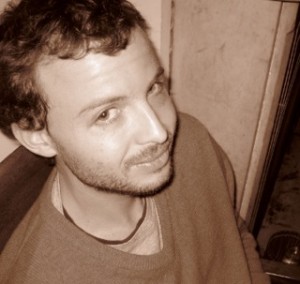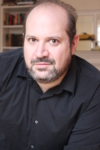 Last winter, we introduced “The Situation in American Writing,” a questionnaire adapted from The Partisan Review that asked questions about literature’s responsibility to address seismic changes in culture, the publishing industry, and the political and geopolitical landscape. That questionnaire, which featured responses from Marilynne Robinson, George Saunders, Victor LaValle, T.C. Boyle, Dana Spiotta, and dozens of other writers was incredibly popular and illustrative of the concerns and preoccupations that writers carry with them when practicing their craft.
Last winter, we introduced “The Situation in American Writing,” a questionnaire adapted from The Partisan Review that asked questions about literature’s responsibility to address seismic changes in culture, the publishing industry, and the political and geopolitical landscape. That questionnaire, which featured responses from Marilynne Robinson, George Saunders, Victor LaValle, T.C. Boyle, Dana Spiotta, and dozens of other writers was incredibly popular and illustrative of the concerns and preoccupations that writers carry with them when practicing their craft.
This year we are interested in the situation of writers, rather than writing, in the subjective experience of writing fiction, rather than fiction’s responsibilities to respond to a rapidly changing world. To this end we are interested in examining the trying intellectual, creative, and emotional labor that is often unacknowledged or effaced in the public presentation of writing. What we’re interested in, to put it another way, is pathos.
This year, we’ve crafted a questionnaire asking writers about the effect writing has had on their physical, emotional, and economic health; on the idea of poverty being a precondition for writing well; on what makes writing truthful to one’s self and to readers. Ultimately, we are interested in the consequences of pursuing writing as a vocation
James Guida is the author of Marbles, a book of aphorisms, and of essays that have appeared in n+1, Tin House, and The New Yorker online, among other publications. He grew up in Australia and lives in New York.
How has your decision to write affected your health? Has it had negative effects on your personal life?
That’s hard to know, as I don’t really have another experience to compare it with. Other than observing that all sedentary occupations are bad for your health, any answer would have to be chicken and egg type stuff. Writing can be stressful, but if I don’t do it fairly regularly, even in the most basic private sort of way, sooner or later I end up feeling out of sorts. So there’s a therapeutic element. On the other hand, it’s easy to get carried away while working on something. This is true of essays especially—to look up and suddenly realize that a day has flown by, that you’re still keyed up and in need of exercise or a drink.
With respect to personal life, there’s one clear harmful effect I can think of. You amass too many books and it becomes a nightmare to move.
There is long tradition that links the craft of writing with poverty. Do you think that’s appropriate? Does poverty feel like the most appropriate condition for your practice as a writer?
I usually regard that connection as bunk, at least insofar as it’s insisted upon. There’s no getting away from the fact that a lot of writers have struggled, and not just in the voluntary and sort of genteel sense. Poverty is of course an essential subject in literature. But as an ongoing condition, does it benefit the writing? If it helps spur some people on, create some urgency and hunger to finish things, so be it . . . But I’ve yet to meet a writer or artist who wants to stay broke. They’re not magically immune to the problems that beset others, and time spent grinding to pay bills and worrying about material needs is ultimately time and energy taken away from writing.
This isn’t to say that knowing the details to how a given person lived and wrote can’t inspire you with new admiration or sympathy — there are a number of writers from the past whose plights I find extremely moving, or who make you feel like a sloth in comparison. Nevertheless, I think it’s silly when people act as though you have to be forever downtrodden to be a real writer, or when it’s implied that writing about the upper classes is necessarily suspect—the kneejerk antipathy you sometimes encounter to Proust and James, for example. At bottom, it’s just another dogma that would have all writers be the same. As with most of these notions, there are just too many big and rewarding exceptions,
In a rare 1983 interview the enigmatic and often dour Romanian writer Emil Cioran speaks about only reading Nietzsche’s letters because he became concerned with how untruthful Nietzsche’s published works seemed when read against the miserable condition of his day to day existence (isolated, weak, sickly, certainly not characterized by any sense of vigor). Is there any sense in which the truth of one’s condition should be related to the truth of one’s writing, even if in an oblique sense?
That’s an interesting detail, and especially coming from Cioran. In the past I probably would have said no, the only thing that matters is someone’s work. Lately I’m less sure though, and I’m often amazed when people seem to have figured out some consistent response. It doesn’t help that biography is a genre I find hard to get through! I wish it were available intravenously, I want to know what’s there but not actually read it. For me the thing that matters most is probably whether the discrepancy can be seen as bleeding into the work, structuring or qualifying its vision somehow. Sometimes those links between art and life make sense, while at others they’re a stretch or just not that illuminating. Also, we don’t always need biography to see moral or aesthetic problems in the writing. I mean, it’s not as if you have to know much about Nietzsche’s life to sometimes find him ridiculously exaggerated and out of touch with more rounded human experience. Maybe it helps hammer it home. A similar thing is true of Cioran himself: his early fascist phase is a nasty surprise, and well worth knowing, but in a way, it makes sense. You could argue there’s an arbitrary nihilism, a destructiveness for the sake of it, there in his later writing, it’s just that it’s channeled into mysticism and abstractions instead of politics. I say that while still relishing some of what he did. His book titles alone were genius.
Writing is always partly artifice, a lie — a selection and arrangement of some things, the omission of others. Truth, in a straightforward sense anyway, can be beside the point. And no matter how natural or convincing a writer is on the page, how do you know what’s going on beyond that? If someone’s managed to thoroughly and appealingly be themselves in both work and life, that’s great, and I tip my hat to them, but it’s not something I go in expecting.
Are you envious of other people’s success? If so, are you more envious of people’s success in your field or outside of it? Why?
I’d say I’m envious of certain writers’ talents more than of their success, but I may be kidding myself, since if I had the same talents the success would follow. It’s always easy, in an indiscriminate way, to want the benefits more established writers have. Generally though I find it more pleasant to dream of what it would be like in other fields. Musicians, filmmakers, graphic novelists… The cartoonist Kate Beaton — what she does must be a lot of fun.
Aside from writing, do you have any other marketable skills? If so, are you ever tempted to cease writing fiction entirely so you can live a more stable life?
I’ve worked in publishing briefly and for a nonprofit. I’m regularly tempted to take on a day-job and may do so again tomorrow, but not to give up writing in the process.
Give one example in which you had high hopes for success (artistic, commercial, or otherwise) but had those hopes dashed.
I guess with Marbles there was an expectation that it might get out there a bit more, that more people might want to talk about aphorisms and how they could relate to changing reading patterns and whatnot. But really I was very lucky to have even a few people say something nice. Sad fact, but when I worked over at FSG I saw that even with the best and most respected poets from around the world, there might be barely any reviews of their latest books.
Do you feel like the world owes you a chance to make a living as a writer?
No. Just say I’d written a book that had the popularity of Stieg Larsson, or even Zadie Smith or Franzen, and somehow I wasn’t earning any money from it, maybe it was being illegally downloaded or something: I’d say, hell yes, the world owes me a chance to make a living! The situation for the majority of writers, and literary ones especially, is different. It’s a given that most of them need to do something else too. If there are readers out there who seem to like what you write, and it looks halfway plausible that such a living could be made, of course you’re going to give it a try. But the most you can do in such a case is try to look creatively at your situation, support the things you think should be supported, persist and see what happens.
The sort of writing I do is hardly essential to society. If granted a one-on-one with said world, there are a few issues I’d like to take up before that of the literary marketplace. Naturally I want promising writers to be able to reach their full potential, and I do think it’s important certain magazines and presses be able to survive irrespective of their profit margins. But I also tend to think writers are going to write no matter what. The main thing is just whether there are exciting people at work, whether the culture is vibrant. Right now I believe it is.
What is the strongest emotional reaction you have ever elicited from a reader, either in your written work or during a reading? What is the strongest emotional reaction you have ever elicited from yourself during the writing process?
Well I haven’t done all that much, and in what I have, I’ve mostly tried to keep emotion indirect. But anyway, there have been a couple of times at readings where someone has laughed loudly, in such a way that you get the sense it’s coming from a cathartic place. Other people will actually look at them — I love it, that’s the best response I could ever get. As for the writing process, I don’t really understand where my own strong reactions come from. It has something to do with feeling that I’ve finally gotten to the heart of some subject I care about, that it’s been looked in the eye.
When are you at your most truthful as a writer?
You mean there are times when I’m not? Who knows. Perhaps it’s in very small things, when not everyone might suspect it.
This post may contain affiliate links.







